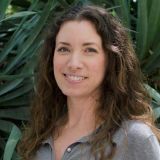Programs for Fellows
BioPACIFIC MIP Fellows are invited to participate in a variety of knowledge sharing and training activities. Contact us to get involved.
Travel Awards
Fellows, SET researchers, and UCLA/UCSB users on approved Local projects are encouraged to apply for travel grants of up to $500 for presenting MIP-driven research at conferences and workshops as well as for company/university visits (domestic travel only). These grants are intended to showcase research resulting from usage of MIP facilities. Apply through the website application portal (inset) with information about the opportunity and how it relates to BioPACIFIC MIP. Awards will be made on a rolling and first-come first-served basis, with priority given to first-time applicants.
